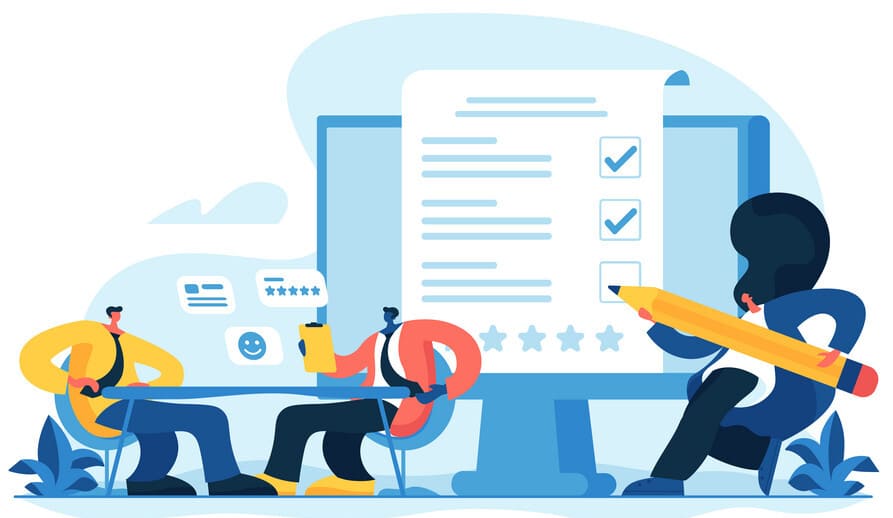Get access to the world’s top-rated assessments for your Employees
Help keep your employees happy, healthy, and productive with our engagement programs, suitable for both small and large businesses.
Happier employees, better business outcomes
Try MantraCare Assessment Program
"*" indicates required fields
What is the Depression Assessment?
Depression Assessment is a process of evaluating an individual’s emotional and mental well-being to determine if they are experiencing symptoms of depression. It involves answering questions about feelings, thoughts, behaviors, and physical symptoms to determine the severity of depression.

Benefits of the Depression Assessment for Corporate Employees
Depression can have a significant impact on an individual’s work performance, personal life, and overall health. Regular depression assessments can help companies identify employees who may be experiencing depression, so they can receive the necessary support and treatment. Some of the benefits of depression assessment in the workplace include:
Improved Employee Well-being: Regular depression assessments help employees identify symptoms of depression early, so they can receive appropriate support and treatment.
Increased Productivity: When employees receive support for depression, they are more likely to be productive and engaged at work.
Reduced Absenteeism: Depression can cause employees to miss work or be less productive while at work. Depression assessments can help companies identify employees who are struggling with depression and provide them with the support they need to stay at work.
Better Health Outcomes: Depression can have a significant impact on an individual’s overall health. Depression assessments can help employees get the support they need to manage depression and improve their overall health.
How to Launch the Depression Assessment in Your Company?
To launch a depression assessment program in your company, you will need to follow these steps:
Develop a Policy: Develop a clear policy that outlines the purpose of the depression assessment program, who is eligible for assessment, and how the results will be used.
Identify a Provider: Find a qualified provider to conduct the assessments, such as a licensed mental health professional.
Train Managers and Supervisors: Train managers and supervisors to recognize the signs of depression, how to refer employees for assessment, and how to support employees who receive a positive depression assessment.
Communicate with Employees: Communicate the depression assessment program to employees and encourage them to participate.
Provide Support: Ensure that employees who receive a positive depression assessment have access to support, such as counseling and treatment.
In conclusion, depression assessment is a valuable tool for companies to identify employees who may be struggling with depression and provide them with the support they need. Implementing a depression assessment program can help improve employee well-being, increase productivity, reduce absenteeism, and improve overall health outcomes.
Client's Sayings

“I was feeling lost and overwhelmed with depression, and didn’t know where to turn for help. That’s when I found the depression assessment. It was a lifesaving tool that helped me to understand the root causes of my depression and provided practical strategies for managing my symptoms. The assessment was easy to complete and the results were presented in a clear and concise manner. I was impressed with the level of detail and accuracy of the report, and how it helped me to gain a better understanding of my condition. I highly recommend this assessment to anyone struggling with depression. It has truly been a game changer for me, and has helped me to take the first steps towards a brighter future.”
Naveen, Vice President HR
Global IT Services Company
Frequently Asked Question's
Depression is a common and serious medical illness that negatively affects how you feel, the way you think and how you act.
Some of the common symptoms of depression are feelings of sadness, hopelessness, and emptiness. Other major symptoms include cramps, digestive issues, and bloating.
One of the most serious complications of major depression is heart disease and the second is cancer. it can also lead you to face issues with Pazin, sexual desire and performance, and sleeping disorders.
When depression becomes a major concern, it starts causing troubles in your day-to-day life. You will not be able to concentrate even after trying so hard. You will unnecessarily start feeling tired.
Depression can be of the following types:
- Seasonal affective disorder
- Psychotic depression
- Major depressive disorder
- Unipolar and Bipolar Depression
- Dysthymia and chronic depression
- Postpartum depression
- Premenstrual Dysphoric Disorder

